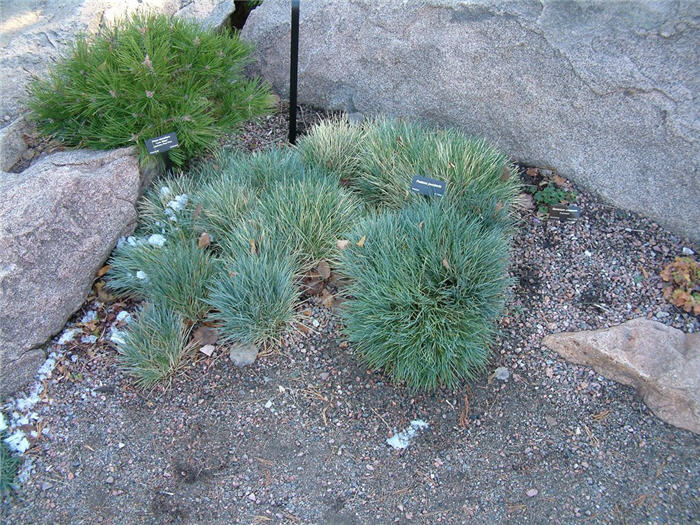| Botanical Name: Festuca punctoria | |
| Common Name: Prickly Fescue |

-
Anatomy
-
Culture
-
Design
Plant Type
Broadleaf Evergreen, Ground cover, Perennial, Grass
Height Range
3-6'
Flower Color
White
Flower Season
Spring, Summer
Leaf Color
Blue Green
Bark Color
n/a
Fruit Color
n/a
Fruit Season
n/a
Sun
Full, Half
Water
Low, Extra in Summer
Growth Rate
Moderate
Soil Type
Sandy, Clay, Loam
Soil Condition
Average, Rich, Poor, Well-drained, Dry
Soil pH
Neutral, Basic
Adverse Factors
n/a
Design Styles
English Cottage, Japanese, Meadow, Mediterranean, Ranch, Spanish, Native Garden
Accenting Features
Showy Flowers, Unusual Foliage
Seasonal Interest
Winter, Spring, Summer
Location Uses
Perennial Border, Shrub Border, Foundation, Parking Strip, Patio, Raised Planter, Walkways, With Rocks
Special Uses
Mass Planting, Lawn Alternative, Small Spaces
Attracts Wildlife
Birds, Wildlife
Photographer:
-
Description
-
Notes